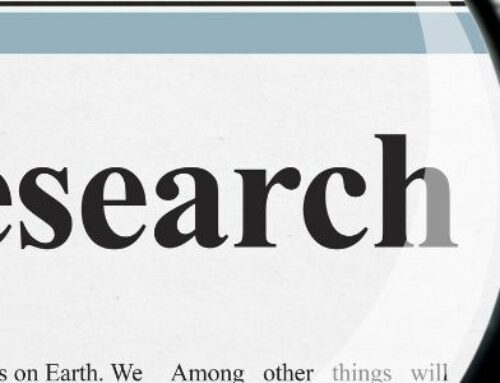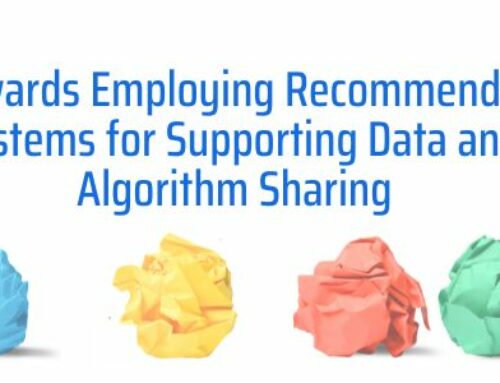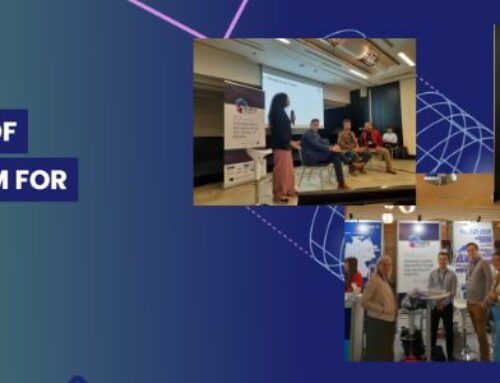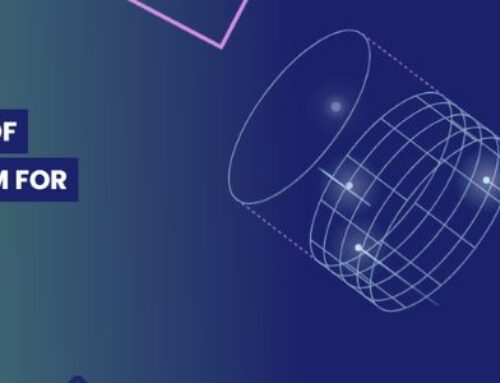Progress in data exchange through EU initiative TRUSTS
Vienna/Hanover – 25 February 2021 – Europe can not keep up with the international competition on data and digitalisation – not yet. The number of initiatives that want to provide assistance in this area is constantly increasing. One of them is the EU project TRUSTS, which is working on practicable solutions to problems of commercial data exchange and explicitly focuses on ensuring that ethical and legal values are upheld.
Data markets are not really different from traditional markets. A data market is a (virtual) place where data is made available and interested parties can purchase it. The problem: Similar to the local weekly market where the trusted farmer’s wife only offers one type of apple, data markets are limited in the selection of data available. Conversely, a limited number of data also means a limited number of interested parties. The EU project TRUSTS aims to break up this microcosm and optimise commercial data exchange. The goal is to build a TRUSTS platform that also acts as a so-called “data market federator” and thus integrates existing and future data markets into the TRUSTS platform. In this case, the data to be traded will remain with the owner. An interoperability component is being developed in TRUSTS for this purpose, with the help of which other data markets can be connected to TRUSTS. The platform acts as a collected marketplace where data can be brought together and queried across sectors. In this way, the offer is expanded many times over for both providers and interested parties.
Secure data sharing through the linking of data markets
In order to create a common data marketplace, different data markets must be linked with each other. Through this linkage, interested parties have the opportunity to access the data relevant to them from an extensive data pool via a single point of contact (TRUSTS platform Federator).
For this, TRUSTS draws on experience from the Data Market Austria (DMA) project and the already existing reference architecture of the International Data Spaces Association (ISDA) and its formal standards. The reference architecture defines key concepts and requirements for data exchange. The technical further development of the IDS architecture should make it possible to connect participants with each other, exchange queries and transfer data. In this way, data sharing is to be taken a step further towards competitiveness at the European level.
Data and applications for data processing and analysis are made available via a so-called “Trusted Connector”. The focus is on secure data exchange and the trustworthy interaction of the participants in the system. Security can be achieved, for example, through restricted access to network interfaces and through the certification of applications and services. As a rule, data is centralised via a provider. However, via the “connector” already mentioned, data can be offered or acquired in a decentralised manner – regardless of where the data actually reside.
Hurdles to overcome
In addition to legal and ethical framework conditions, there are still a number of open questions, especially at the technical level. For example, the standardisation of data or the interfaces needed to connect all data markets to one marketplace. In order to be able to gather empirical values here, in a first step, solution approaches for the joint use, trade and (re-)use of data and services are being tested in three different use cases in the areas of finance (anti-money laundering compliance), marketing (agile marketing through data correlation) and customer support (improvement of customer support through data collection).
In order to be able to keep up internationally, a uniform EU data strategy and, associated with this, the ability to ensure data sharing in a uniform manner is of great importance. The first positive projects and initiatives have already been launched by Data Market Austria and IDSA. TRUSTS aims to take these projects further and implement them sustainably. TRUSTS also wants to link up with other projects to create a macro-structural solution.
Additional information on interoperability can be found in the deliverable D3.4 Data Marketplaces with Interoperability Solutions I.
You can also find more information on interoperability and data markets in the TRUSTS podcast with Stefan Gindl, task leader within the framework of TRUSTS (german only):




